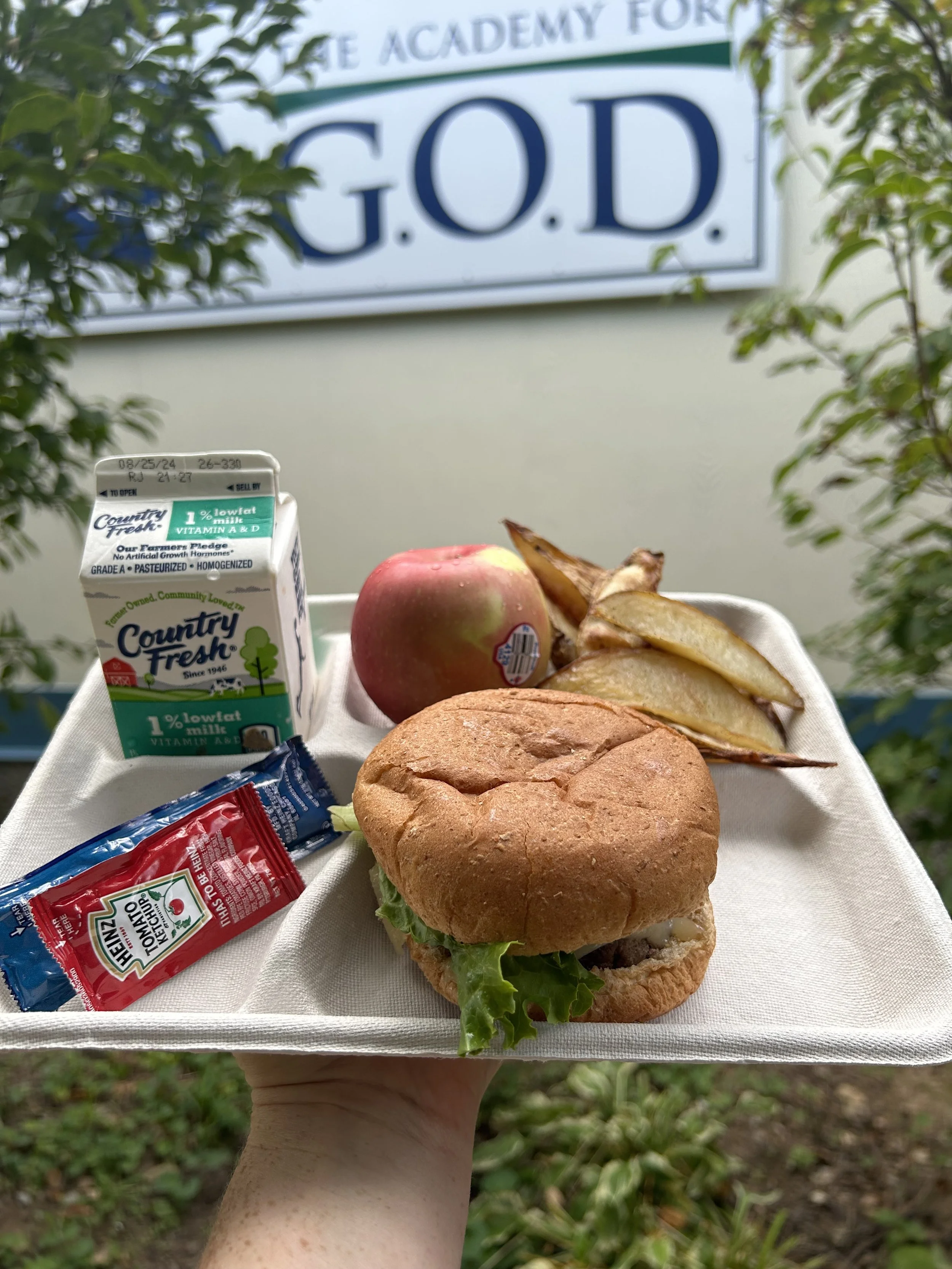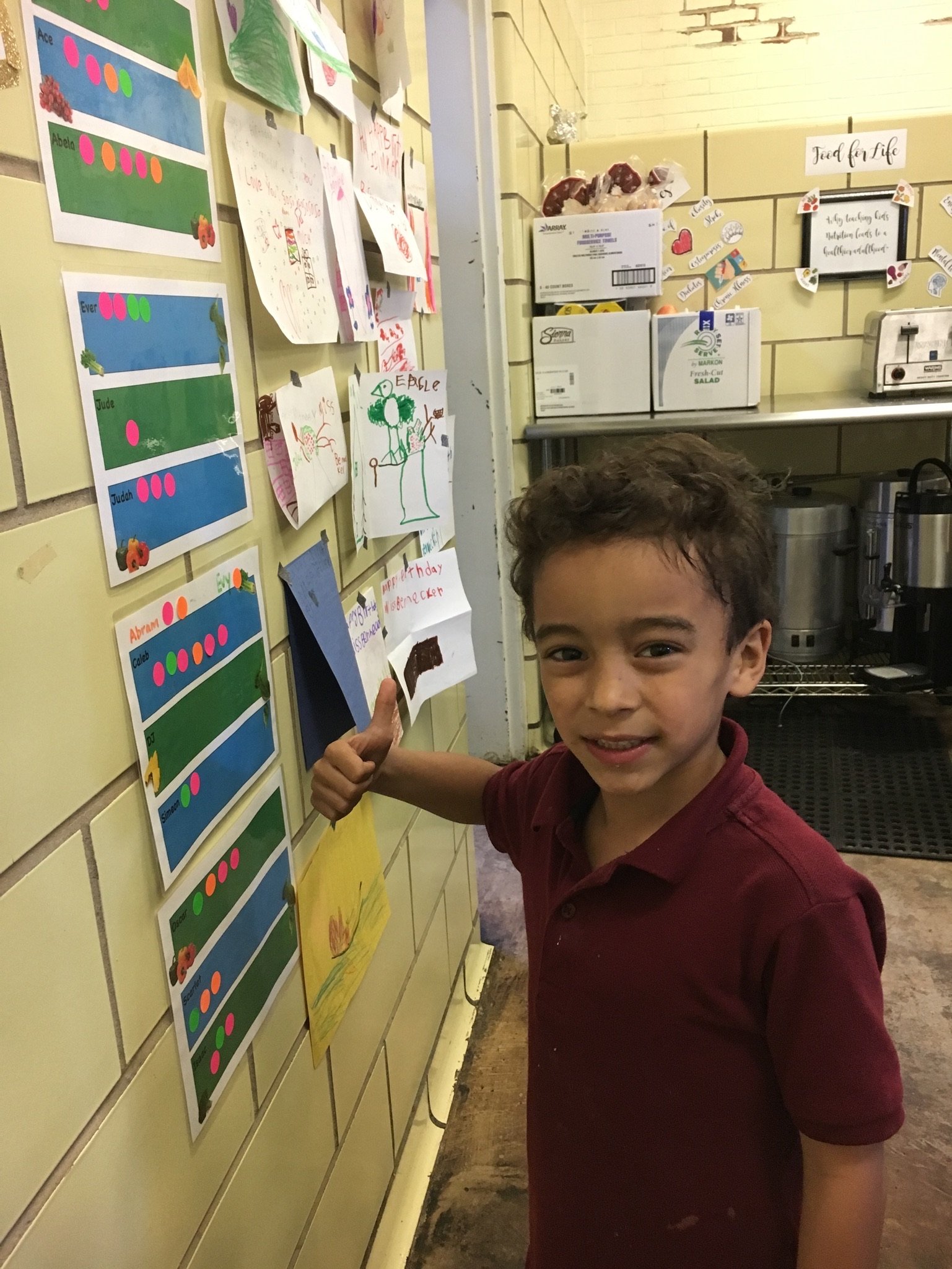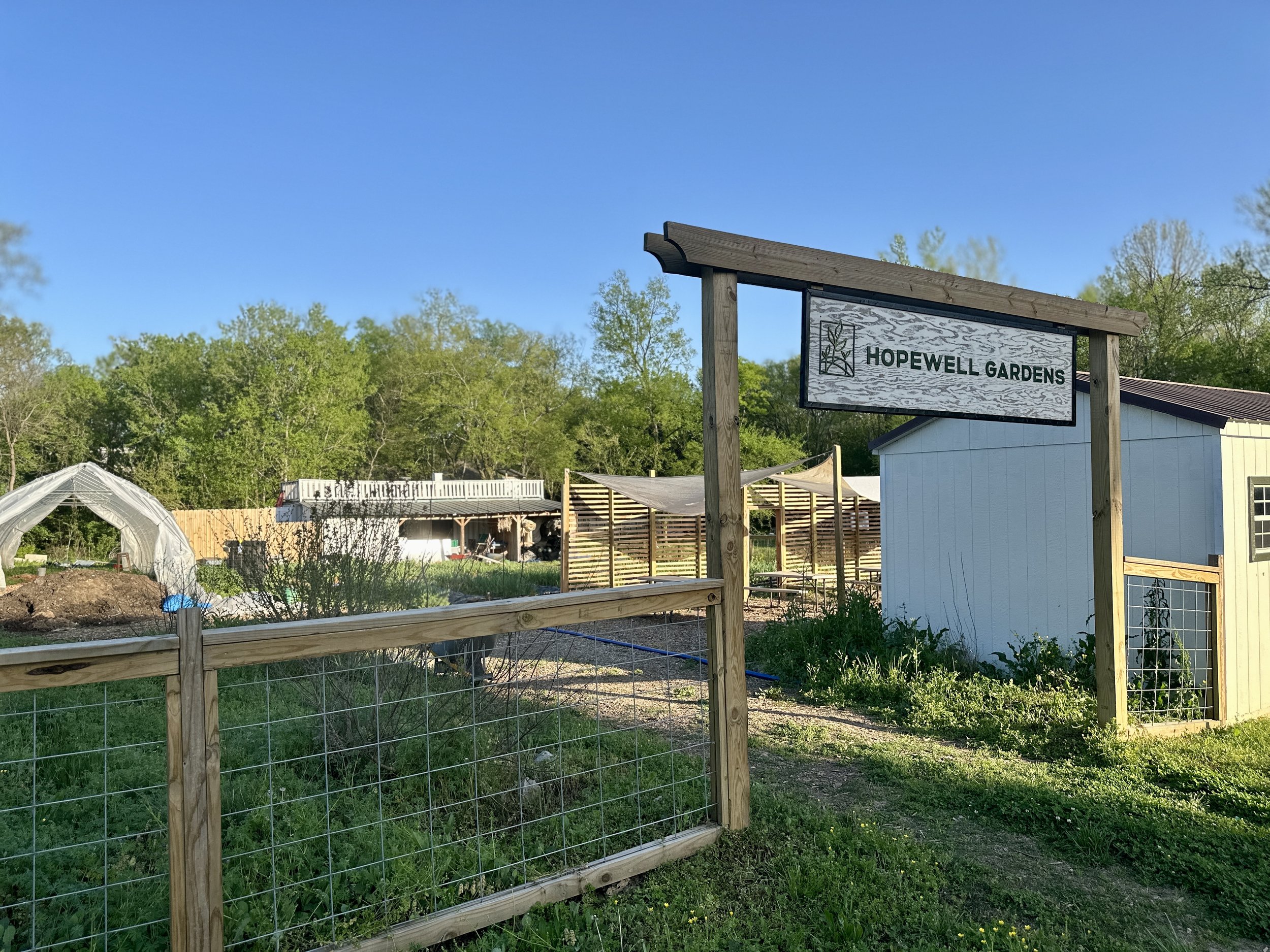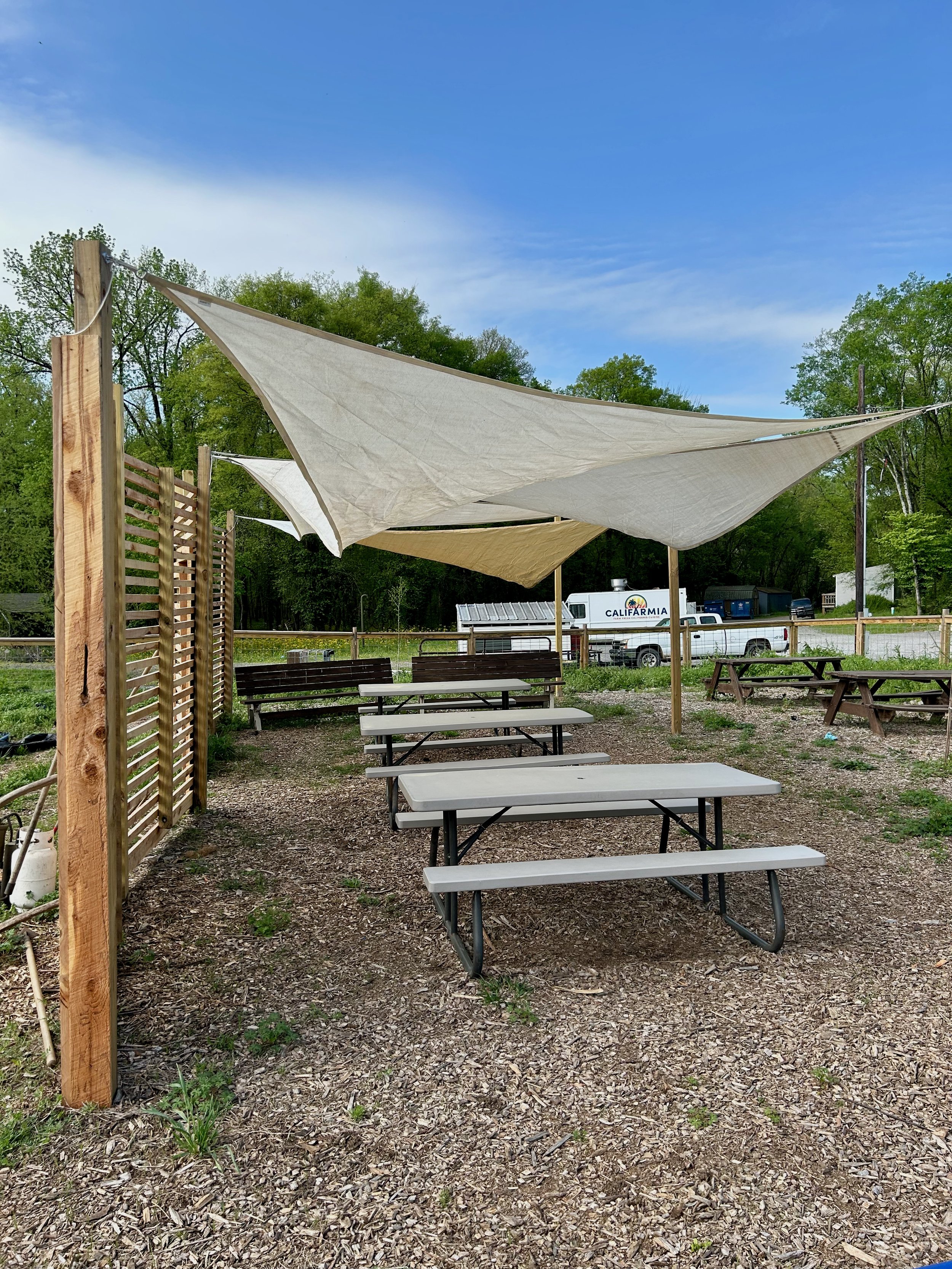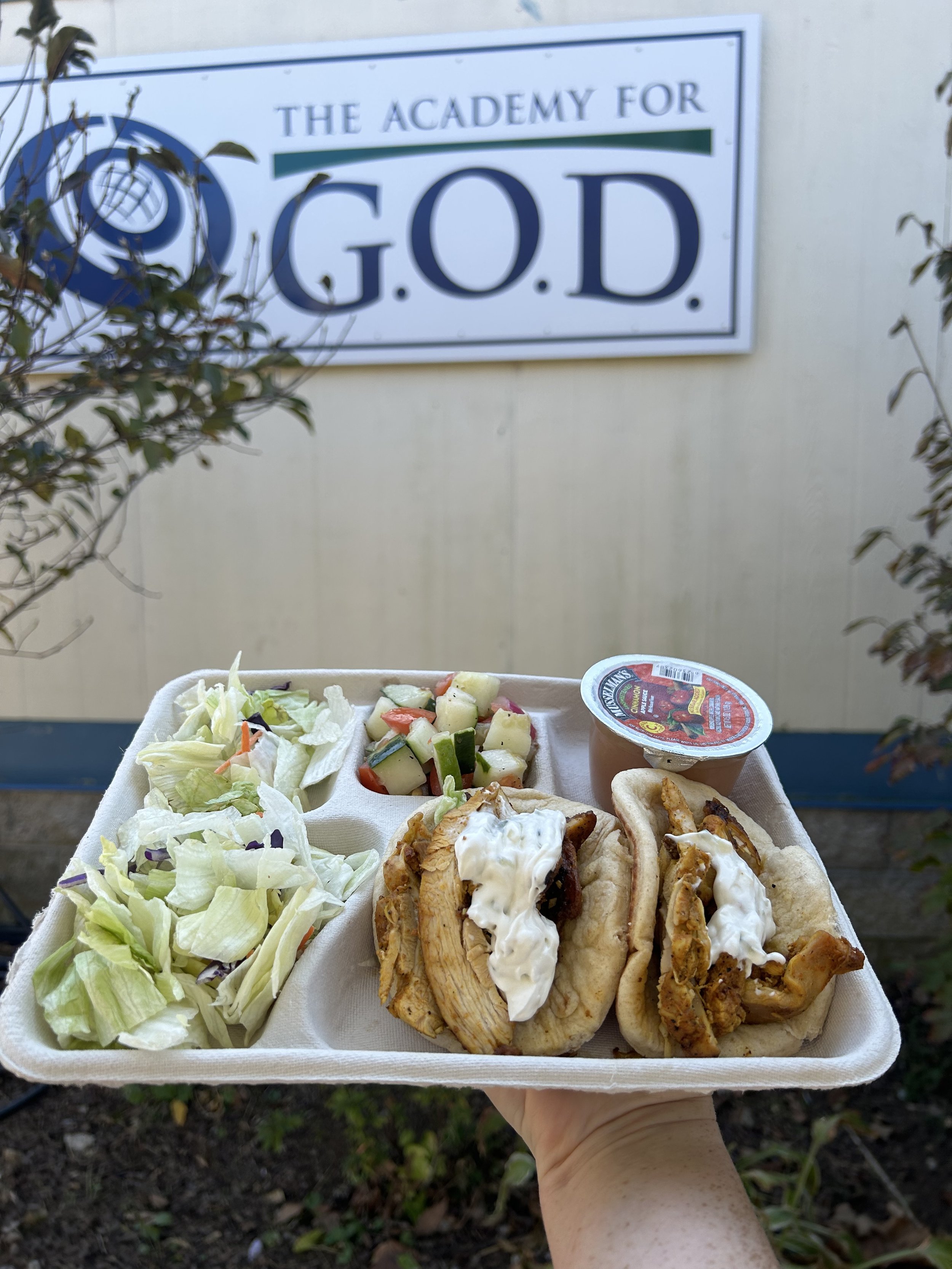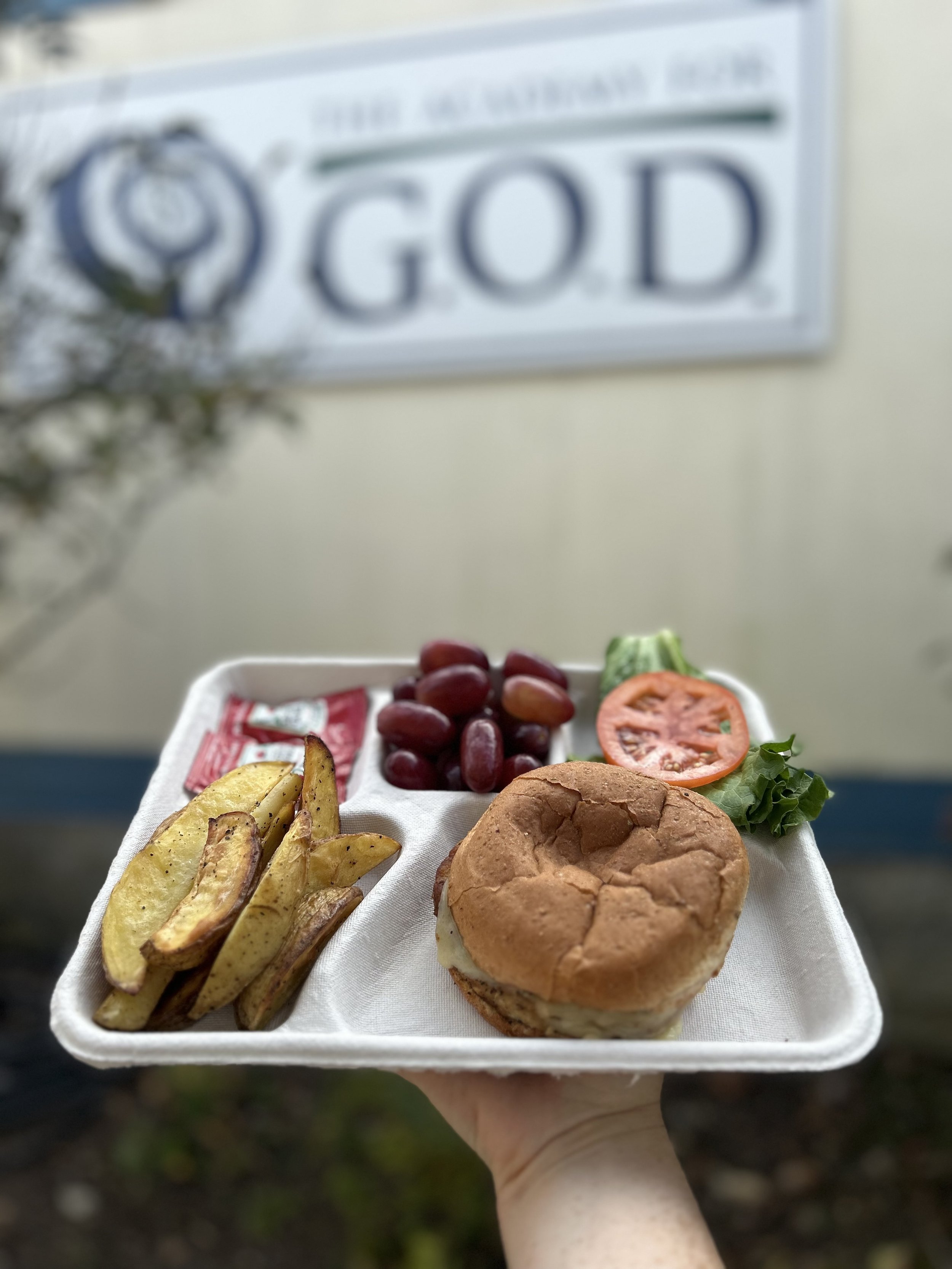Local Foods For School Grant Recipient
October is National Farm to School Month and our school nutrition program is pleased to announce the results of a recent farm to school grant that we have facilitated during both the 23/24 and through the first two months of the 24/25 school year.
The Local Food for Schools grant was part of the USDA’s program to bring local foods into schools and infuse funding into our local small farming economy. We are thankful that this grant did both! The school nutrition program purchased chicken, beef, turkey as well as some fresh vegetables over the course of the grant duration.
What was the impact of this grant on the menu? We were able to serve close to 3,000 lbs of chicken, almost 1,000 lbs of turkey and nearly 900 lbs of ground beef to our students. This amounts to about 100 meals in which our students had a local meat source on the menu. To put that into perspective the students have 180 days in a single school year. This accumulates to about 80% of their meals having a local protein that was served from August of 2023 through September of 2024.
What was the nutritional impact of this grant? The beef, turkey and chicken served through this time frame was mostly from Pure Pastures, a local small farm. They produce high quality meats that are: Non GMO, ethically raised, no vaccines, no chemicals, no medications, no antibiotics and no animal by-products. Their beef is 100% grass fed which creates a nutrient dense protein.
Grass fed beef tends to be higher in Omega-3 fatty acid, more antioxidants, more vitamin k2 giving more nutrient dense qualities to the beef and in turn the consumer. Pasture raised chicken “contains 50% more vitamin A compared to conventionally raised chicken.” Vitamin K is essential for immune function, vision and overall skin health.
Pasture raised chicken can also be found to have higher levels of iron, higher levels of omega 3 and higher levels of vitamin E. Overall the quality of the meat is greatly increased with pasture raised/grass fed animals. With this grant we were able to infuse our students' diets with high quality proteins and give them the nutrition they need to fuel a wonderful day of learning!
Celebrating 10 Years of School Meals: A Reflection from the Nutrition Supervisor
This year, we proudly celebrate 10 years of our school nutrition program at the Academy for GOD! As we look back on a decade of serving minimally processed, made-from-scratch meals with farm-to-school foods, we reflect on the efforts that have shaped our students' health and futures. Breann Chigumira, our dedicated Nutrition Supervisor, shares her testimony on the impact of this program and the privilege of guiding it from its humble beginnings to what it is today.
This year, we proudly celebrate 10 years of our school nutrition program at the Academy for GOD! As we look back on a decade of serving minimally processed, made-from-scratch meals with farm-to-school foods, we reflect on the efforts that have shaped our students' health and futures. Breann Chigumira, our dedicated Nutrition Supervisor, shares her testimony on the impact of this program and the privilege of guiding it from its humble beginnings to what it is today.
Nourishing the Future
“When the program first started, I knew this was a huge opportunity to impact the health of our students well into their adult years,” shares Breann. “We wanted to shape their eating habits, fuel their days, and expose them to new and healthy foods.”
In 2014, our program began with about 80 students, serving both breakfast and lunch every day. The mission was simple but ambitious: to create meals from scratch, with an emphasis on minimal processing and wholesome ingredients. “We made everything we could in-house, from salmon patties and tartar sauce to pizza dough and sauces. We even cut up whole pineapples to avoid fruits in sugary syrup,” recalls Breann. “The workload was intense, but the goal was always clear: to ensure our students had access to nutritious meals.”
Expert Culinary Leadership
From the outset, our program required a skilled culinary team to execute the vision. Breann served as our Executive Chef in the early years, drawing from her experience in college meal programs. As the program grew, we welcomed Mr. Rafa Reyes, a seasoned chef with over a decade of experience who brought his unique touch to our school menu. Today, our kitchen is led by Mr. John Edmondson, whose impressive background includes roles as the Executive Chef at Dodger Stadium and in 5-star dining. Their expertise and passion have been essential to maintaining the high quality of our meals.
Farm-to-School: A Core Value
Farm-to-school has been a cornerstone of our program since day one. With an on-campus garden, students have had the chance to work in the soil, harvest vegetables, and even pick fruits for their meals. “Seeing students pick lettuce, kale, and tomatoes that end up on their plates is a powerful lesson in sustainability and food origins,” says Breann. Long before the farm-to-school movement gained national momentum and funding, our garden staff were teaching students safe agricultural practices and the value of local food systems.
Overcoming Challenges, Celebrating Success
Balancing the demands of creating nutritious meals, adhering to regulations, and working within tight budgets has not always been easy. But as Breann reflects, “The challenge of feeding students excellent meals while meeting all guidelines is tough, but our students are worth it. We truly believe they are benefitting from years of learning healthy habits.”
Today, as we celebrate this milestone, we are grateful for everyone who has contributed to the success of this program—from our Founder and Head of School, Gregg Garner, to dedicated kitchen staff to our farm-to-school educators, and of course, our students who inspire us every day. The hundreds of thousands of meals we've served over the past decade are a testament to our commitment to their well-being.
A Decade in Photos: From Elementary to Senior Year
Below, you’ll find photos that capture the journey of our students with their school lunches—from their earliest elementary years to now, as some prepare to graduate as seniors. These images reflect not just the growth of the students, but the evolution of a program that has fed bodies, minds, and futures for the past ten years.
We are proud of how far we've come and look forward to continuing to nourish our students for years to come!
‘Gro More Good’ Grant Achieved!
Recently the Academy received the ‘Gro More Good’ Kids Gardening Grant from Scotts Miracle Grow. In cooperation with Hopewell Gardens the funding is being used to finish an outdoor educational space!
This spring, the Academy received the ‘Gro More Good’ Kids Gardening Grant from Scotts Miracle Grow. In cooperation with Hopewell Gardens the funding is being used to finish an outdoor educational space. Once finished this 400 square foot sheltered pavilion will provide a comfortable atmosphere for student instruction for up to 50 students. The space is perfect for agricultural instruction since it is positioned within Hopewell Gardens and just a short walk from the Academy school building. This allows students a seamless and quick transition between instructional time and hands on learning experiences in the garden. The outdoor classroom is a purposeful and educational space even in its planning and construction.
The outdoor classroom ‘wall’ is constructed is a trellis wall where plants will be grown up the side to create additional shade and a natural cooling affect. The trellis wall can act as an educational moment for students to learn about sustainable and eco-friendly building structures. We are so grateful for Hopewell Farms for their help in submitting this grant for our school and for their aid in the constructions of the space. As a farm to school program we love enhancing our programming and education in the realm of agriculture, and our students will benefit greatly from this new space! Each elementary student at the Academy has a class dedicated to working and learning in the garden at least once a week, facilitated by Farmer Jameson. Over the years, students have harvested everything from hibiscus and strawberries to lettuce and kale!
Our demonstration garden allows students to taste test foods as they are grown and occasionally eat those foods in their school cafeteria. Thank you to Scotts Miracle Grow for contributing to our efforts to enhance Academy students’ experience in the garden.
The Nutritional Benefits of School Meals
March is national nutrition month, which is a perfect time to review the nutritional benefits of school meals. Dietary diversity and nutritional guidelines are two ways school meals can benefit a school age child’s nutrition.
1. Dietary Diversity: Dietary diversity is the variety of foods or food groups in a person's or household’s diet.1. Eating a variety of food and food groups is a key component to dietary diversity, which in turn allows for a greater amount of nutrients, vitamins and minerals to be consumed. “Low dietary diversity in children is linked to nutrient deficiencies that lead to a range of health conditions such as anemia and stunted growth” 2,3. School meals present a unique ability to address a potential lack of dietary diversity and ensure students have access to a variety of meals. In a single week students have access to what are called ‘sub groups’ of vegetables. Per regulatory guiltiness students must have each of the following sub groups of veggies: leafy greens, dark greens, legumes, red/orange and a miscellaneous group that includes items like cucumbers. This means by default school meals will present students with the opportunity to take in a wide range of nutrients from just vegetables alone. This doesn’t include offerings of whole grains, proteins, milk and fruit. School meals are prepared meals, meaning they are cooked for the students daily. Because of this dietary diversity increases just for the fact we are not limited to just grab and go foods or cold foods such as sandwiches or prepackaged items. Students have on the menu several types of whole grains throughout the week as well as a wide range of fruits, all of which present their unique nutrient dense qualities.
2. Nutritional Guidelines: The second way that school meals present a huge nutritional benefit is through the USDA nutritional guidelines for meals. As a school we have to ensure students receive items that have the appropriate amount of calories, fat, sodium and in some cases sugar. Students receive meals that have been tailored for their age/grade. The meals also have to have all the appropriate components including, grains, meat, vegetables, milk and fruit. Students will undoubtedly have a more nutritionally balanced when the meal has been planned out and calculated down to the calorie.
School meals are a fantastic way to ensure your student receives 5 meals a week that are pre-planned, diverse and meet strict nutritional guidelines.
1. Mason, P. & Lang, T. Sustainable diets: how ecological nutrition can transform consumption and the food system. (Routledge, 2017).
2. De Benoist, B., Cogswell, M., Egli, I. & McLean, E. Worldwide prevalence of anaemia 1993-2005; WHO Global Database of anaemia. (2008).
3. Rah, J. H. et al. Low dietary diversity is a predictor of child stunting in rural Bangladesh. European journal of clinical nutrition 64, 1393 (2010).
Pure Pastures Farm Owners Testify to Partnership Success
Hear from Pure Pastures Farm owners why their collaboration with the Academy for GOD meal program is so important to them. We’re grateful for this family and the products they produce for our students!
The Academy for GOD’s meal program has been blessed by the positive impact of the partnership with Pure Pastures Farm. Collaborations like these not only benefit businesses but also create a sense of community and mutual support. We recently received a video from the farm’s owners with a little history behind why they love supporting schools like ours. Hearing about their growing practices adds an extra layer of transparency and authenticity to our partnership, giving us valuable insights into the source of the products. As a farm to school meal program, we look forward to the future as a partner with Pure Pastures Farm!








